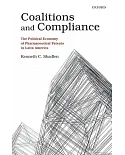From genetically modified foods to digital piracy, the concept of intellectual property (IP) and the laws upholding it play a central economic role in our society today, but its political and
ideological dimensions have rarely been understood outside of specialist circles. This collection cuts through the legal jargon that so often surrounds IP in order to provide a comprehensive
history and close analysis that explore the corporate interests that have shaped how IP is conceived and managed.
Up-to-date and comprehensive, this book examines the wider implications of the concept of IP and questions how IP law has been used to safeguard and assert the ownership of ideas and
creativity. Today, with mounting challenges from the growth of free software and open source movements, this collection provides an accessible and alternative guide to IP, exploring its
significance within the wider struggle between capital and the commons.







